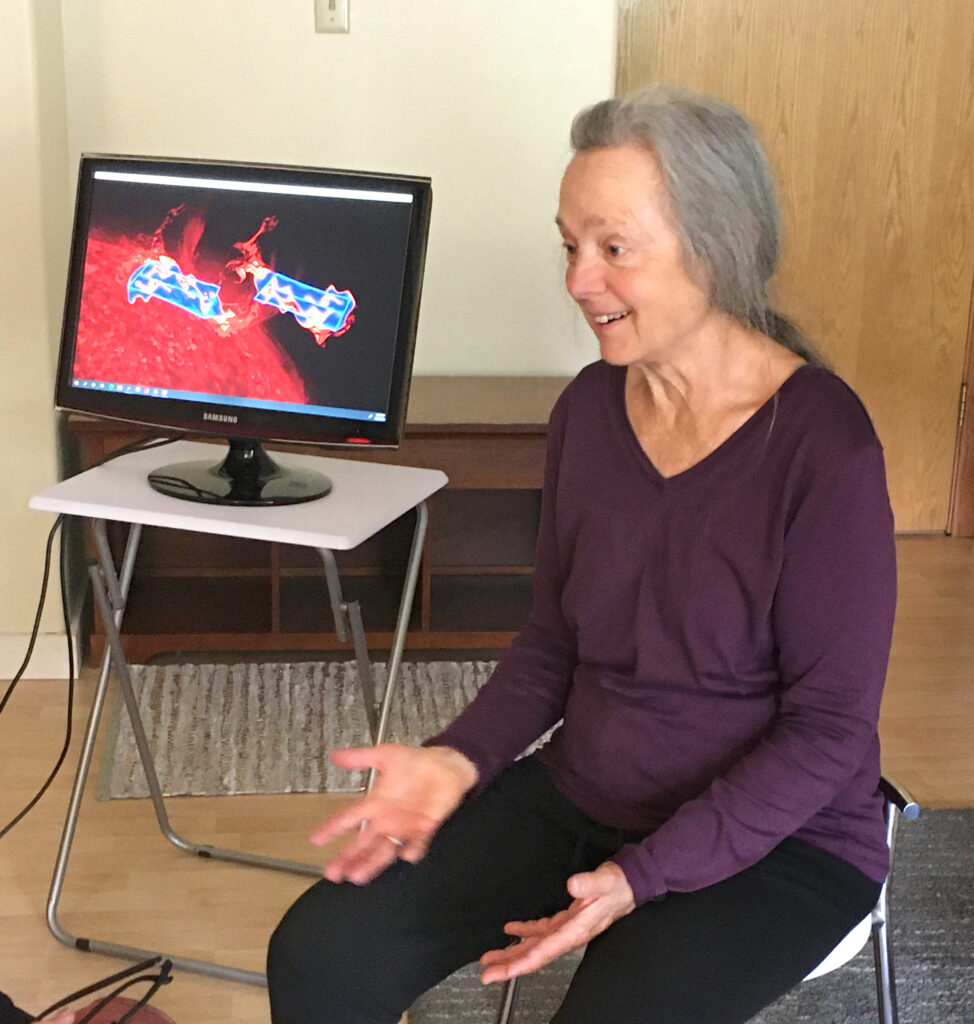
Celeste has an M.A. in Physiological Psychology (see below), and as such has an extensive background in the brain and all the things which influence it. Her studies have led her to study comprehensively many areas of health promotion and maintenance, including physical exercise (she is a Certified Personal Trainer and studied at the Cooper Institute in Dallas); the brain and behavior (she lived with a brother who had early schizophrenia); and particularly diet and nutrition research. She has been teaching diet and nutrition for over thirty years, designing effective, energetic diets for a wide variety of clients. She has direct experience of many dietary variations as well as a comprehensive understanding of how diet affects one’s internal and external reality, plus she applies what she has learned to her own diet.
Plus Celeste continues to apply all that she has learned to her own life, as she exercises consistently five or more days per week including running four days and a trail run of 1:30 every week. Plus she prepares all of her own natural, organic meals from scratch and freezes portions to use throughout the month.
She is also a Certified Touch for Health Instructor and has used Applied Kinesiology for over 40 years to maintain her own balance and help others learn how to create theirs as well.
She also counsels private clients in individual exercise programs, tailored to the client’s needs and aspirations. Her comprehensive background has given her the skills to offer outstanding fitness guidance to seekers of a healthier life.
This background in researching and experimenting with the foundations of health led her to experience the mind-altering effects of NeurOptimal sessions, and inspired her to offer its unique benefits to others.
Physiological psychology, also called biological psychology or behavioral neuroscience, is the study of the physiological bases of behavior. Biological psychology is concerned primarily with the relationship between psychological processes and the underlying physiological events—or, in other words, the mind-body phenomenon. Its focus is the function of the brain and the rest of the nervous system in activities (e.g., thinking, learning, feeling, sensing, and perceiving) recognized as characteristic of humans and other animals.
Biological psychology has continually been involved in studying the physical basis for the reception of internal and external stimuli by the nervous system, particularly the visual and auditory systems. Other areas of study have included the physiological bases for motivated behavior, emotion, learning, memory, cognition, and mental disorders. Also considered are physical factors that directly affect the nervous system, including heredity, metabolism, hormones, disease, drug ingestion, and diet.